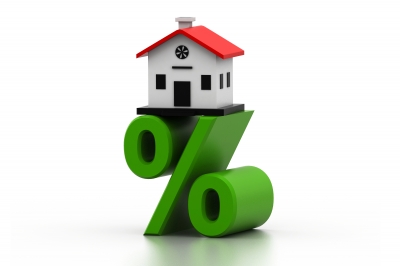Refinancing your home mortgage to a lower rate will not only reduce your monthly payments, it will also significantly reduce your overall debt burden. One percentage point in interest rates can add up to many thousands of dollars in savings in interest payments. In fact, most people find that when they reduce their interest rates on their home mortgage, they are able to pay off their home in a shorter period of time.
When it comes to refinancing, however, a lot will depend on your credit score. New credit policies by most banks and lending institutions require that you have a score of 700 or above to obtain a new mortgage or refinance your current loan. Some lenders, if mortgage insurance is purchased, will allow a credit score of 670 or higher.

Conventional Mortgage
A conventional mortgage will allow you to lock in a low interest rate for the entire term of your loan. These are the most preferred types of mortgages. With interest rates at record lows, you can significantly drop your monthly obligations by refinancing to a conventional mortgage at this time. Use an Online Mortgage Calculator to determine your savings from refinancing to a lower interest rate.
Adjustable-Rate Mortgage (ARM)
An adjustable-rate mortgage will provide you with a super-low introductory interest rate for the first year. After that, the mortgage interest rate will continue to increase each year for five years, until it reaches market value at the end of the adjustment period.
While this low introductory rate may be very tempting, it should be noted that this can have an impact on your monthly obligations in the future. Interest rates will not remain low forever, and you could find yourself with very high payments in a few years.
ARM’s are very good for people that wish to refinance while they are trying to sell their home, or plan on moving within the five year period.
Refinancing Underwater Mortgages
It is important to remember, however, that most mortgage lenders will not refinance a home if the current mortgage is considered “underwater”. Underwater is defined as a loan that is higher in value than the value of the home. Unfortunately, many people are currently in this situation because of the dramatic decrease in home values during the recession and the glut of houses entering the market due to foreclosures. This is unfortunate for them but is providing new home buyers with opportunities to “buy low”.
There are government programs in place that will help these underwater homeowners refinance to lower rates. HARP – Home Affordable Refinance Program is set up by the Treasury Department and Housing and Urban Development (HUD) as a way to help homeowners in this situation.
Additionally, there is the Farm Home Loan program and the Veterans Affairs home loan programs to help people refinance that are underwater with their loans. In addition, there is a program called Hope Now that provides counseling and assistance to homeowners who want to keep their homes but are facing financial difficulty as a result of the crisis in the mortgage market.
Car Refinancing And Other Personal Debts
When you have improved your credit score, you will also have the opportunity to refinance your car loans and other personal debts. Many car lending companies are available to refinance to lower rates, and the requirements are not as strict as with a mortgage.
Credit card debt can be transferred around to different accounts, utilizing the lowest interest rates. Many companies will lower your interest rate also if you call and inform them of your new credit score.
See Also:
- Mortgage Refinancing: Watch Out for Hidden Costs
- Home Loan Refinancing
- First Time Home Buyers Need Budgeting Skills
- Thinking About Renting Out A Room In Your Home? The Legal Issues You Need To Think About First
- What to Look for When You’re Buying Rental Property
- To Rent or Buy: That is the Question
- 3 Tips for Saving Money on Your First Mortgage
- Sell My House Quickly
- Guide to Real Estate Investing
- Should Your Lease or Buy Your Home?
- Housing Trends- Where are the Home Buyers?
- Is Bernanke Stuck in a Housing Time Warp?
This article was written on behalf of KEL Credit Repair, a top source of information regarding the question: “What is credit repair help?” Check out their site and see how they can help you get back on your feet.
Image courtesy of ddpavumba / FreeDigitalPhotos.net
